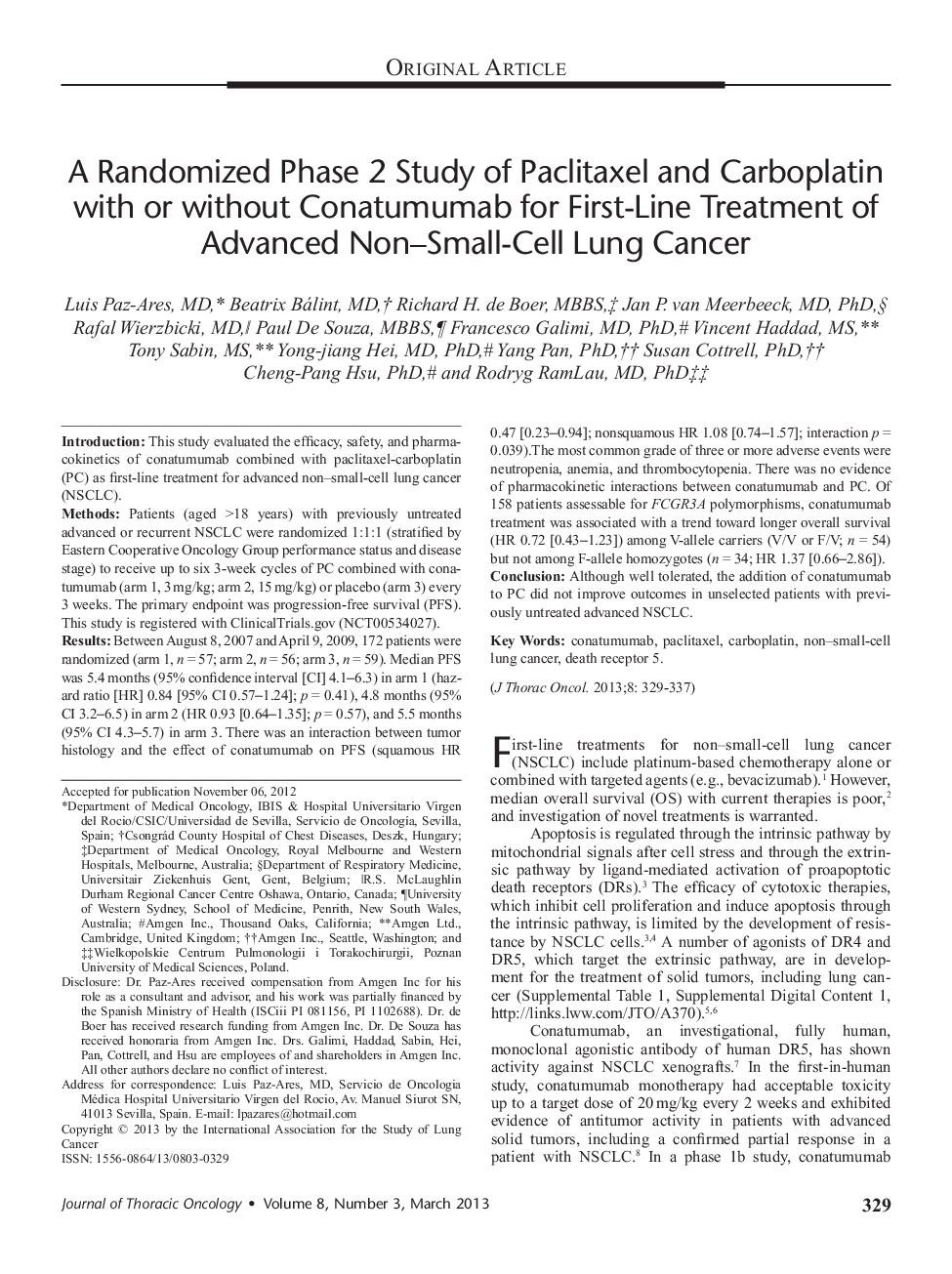| Article ID | Journal | Published Year | Pages | File Type |
|---|---|---|---|---|
| 3990078 | Journal of Thoracic Oncology | 2013 | 9 Pages |
IntroductionThis study evaluated the efficacy, safety, and pharmacokinetics of conatumumab combined with paclitaxel-carboplatin (PC) as first-line treatment for advanced non–small-cell lung cancer (NSCLC).MethodsPatients (aged >18 years) with previously untreated advanced or recurrent NSCLC were randomized 1:1:1 (stratified by Eastern Cooperative Oncology Group performance status and disease stage) to receive up to six 3-week cycles of PC combined with conatumumab (arm 1, 3 mg/kg; arm 2, 15 mg/kg) or placebo (arm 3) every 3 weeks. The primary endpoint was progression-free survival (PFS). This study is registered with ClinicalTrials.gov (NCT00534027).ResultsBetween August 8, 2007 and April 9, 2009, 172 patients were randomized (arm 1, n = 57; arm 2, n = 56; arm 3, n = 59). Median PFS was 5.4 months (95% confidence interval [CI] 4.1–6.3) in arm 1 (hazard ratio [HR] 0.84 [95% CI 0.57–1.24]; p = 0.41), 4.8 months (95% CI 3.2–6.5) in arm 2 (HR 0.93 [0.64–1.35]; p = 0.57), and 5.5 months (95% CI 4.3–5.7) in arm 3. There was an interaction between tumor histology and the effect of conatumumab on PFS (squamous HR 0.47 [0.23–0.94]; nonsquamous HR 1.08 [0.74–1.57]; interaction p = 0.039). The most common grade of three or more adverse events were neutropenia, anemia, and thrombocytopenia. There was no evidence of pharmacokinetic interactions between conatumumab and PC. Of 158 patients assessable for FCGR3A polymorphisms, conatumumab treatment was associated with a trend toward longer overall survival (HR 0.72 [0.43–1.23]) among V-allele carriers (V/V or F/V; n = 54) but not among F-allele homozygotes (n = 34; HR 1.37 [0.66–2.86]).ConclusionAlthough well tolerated, the addition of conatumumab to PC did not improve outcomes in unselected patients with previously untreated advanced NSCLC.
